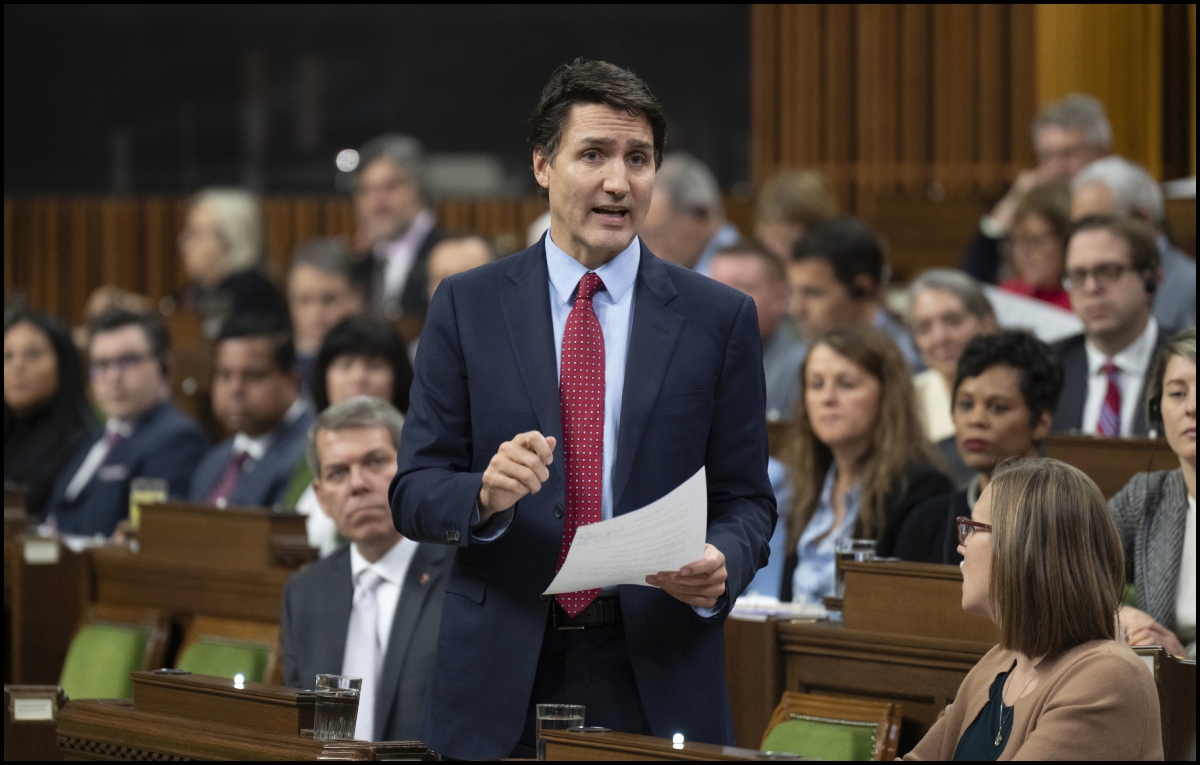Trudeau calls for upholding rule of law at G20 virtual summit amid diplomatic row with India
Trudeau had a tumultous journey in the physical G20 Summit held in New Delhi on September, where tensions remained high as he skipped an official dinner. The rift between the two countries escalated when he made public allegations on India's role behind the killing of Hardeep Singh Nijjar.

Canadian Prime Minister Justin Trudeau on Wednesday once again hinted at the diplomatic row with India over the death of Khalistani terrorist Hardeep Singh Nijjar by talking about coordinated G20 leadership and action to 'uphold the rule of law and international law' and strengthen democratic systems.
Trudeau participated in the virtual G20 Leaders' Summit chaired by Prime Minister Narendra Modi yesterday. He "highlighted the importance of coordinated G20 leadership and action to uphold the rule of law and international law, strengthen democratic systems, and advance global priorities including financial institution reform, gender equality, and digital technology", according to a statement by his office.
Trudeau on global conflicts
"Prime Minister Trudeau condemned Russia’s brutal and unjustifiable invasion of Ukraine, called for Russia to be held to account, and stressed that the most vulnerable worldwide are affected most by the war’s global impacts. He reemphasised the importance of abiding by the rule of law and encouraged Member States to denounce the irresponsible actions of Russia," said the PM's office.
He also reiterated his condemnation of Hamas and its brutal attack against Israel on October 7, which killed over 1,200 people, and recognised the agreement of a four-day truce and release of hostages as 'progress'.
"The Prime Minister and other G20 leaders exchanged views on the dire humanitarian situation in Gaza. Prime Minister Trudeau stressed the need to protect civilians in Gaza and ensure unimpeded access to life-saving humanitarian aid. The Prime Minister condemned the disturbing rise in Islamophobia, antisemitism, and anti-Arab discrimination," further read the statement.
India-Canada relations
Trudeau's statement comes after India restored e-visa services for Canadian nationals as a sign of thawing diplomatic tensions. In a post-summit press briefing, External Affairs Minister S Jaishankar said that the step was taken because the situation for Indian diplomats in Canada had become more secure.
"What had happened was we had temporarily suspended visa issuance because the situation in Canada made it difficult for our diplomats to do the, you know, frankly to go to the office and do the necessary work for processing visas," Jaishankar said.
Earlier in September, India had suspended visa services until further notice, citing operational reasons, after tensions flared up following Trudeau's allegations of the Indian government's role in Nijjar's killing. India decided to resume visa services in Canada in October for four categories - entry visa, business visa, medical visa and conference visa - after a considered review of the security situation.
How it started?
On the last day of the G20 summit in September, Trudeau posed and smiled with PM Modi as world leaders paid respects at Mahatma Gandhi’s memorial, however, behind the scenes though, tensions were high. The Canadian Prime Minister skipped an official dinner hosted by the Indian president, and multiple media reported he was snubbed by PM Modi when he got a quick “pull-aside” instead of a bilateral meeting.
Trudeau later shocked New Delhi after he claimed that he had 'credible evidence' that India was behind the killing of Nijjar -- a claim that India rejected outrightly and dubbed the allegations both baseless and "absurd".
The allegations turned into a major political rift after Trudeau involved the United Nations, Australia and the UK in calling on India to cooperate in the investigation.
However, India, on multiple occasions, asked Canadian officials to provide them proof to back their claims, but as of now, the MEA said it hasn't received any. India expelled 41 Canadian diplomats from New Delhi in order to make a "balance" in the embassy.